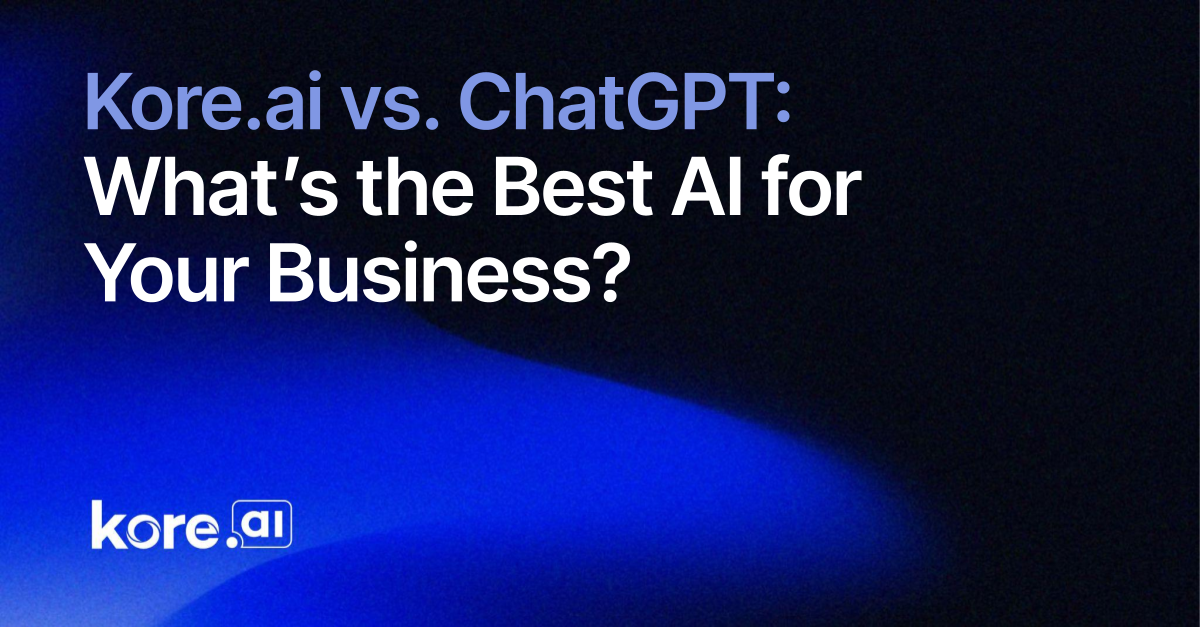AI’s Impact on Jobs, Trust, and Innovation: Insights from Accenture’s Technology Vision 2025
AI is the new digital, Accenture says in its latest Technology Vision 2025 report. This 25th edition of the company’s research, titled “AI: A Declaration of Autonomy,” frames AI as not only a pivotal technology but also a catalyst for entirely reshaping workflows and business processes. AI will permeate every part of the enterprise, with its transformative impacts already becoming evident in industries and government operations, according to the report's author Karthik Narain, Accenture group chief executive of technology and CTO, and his team of editors and researchers. “Advancements in digitizing knowledge, new AI models, agentic AI systems, and architecture enable enterprises to create their own unique cognitive digital brains,” Narain said in a release. “While conventional technologies have long supported pre-determined business needs, this is a generational moment of transition. The autonomy created by these generalized AI systems can help organizations be more dynamic and intention-driven than ever. It will allow leaders to rethink how digital systems are designed, how people work, and reinvent how they create products and interact with customers. But trust underpins it all, as systems will only ever be as autonomous as they are trustworthy.” AI Agents and the ‘Binary Big Bang’ Accenture says we have reached the "Binary Big Bang": Organizations are entering a transformative era where foundation models are revamping technology systems and how they’re designed, used, and managed. “Today’s technologies are not the endgame—they are how we are getting there. A technological future of abundance, abstraction, and autonomy is what leaders need to be planning for,” the report notes. Autonomy is the keyword here. In recent months, predictions about AI agents (autonomous systems designed to perform specific tasks) have dominated conversations in the tech world, fueled by the rapid adoption of generative AI. Accenture says enterprises are beginning to embrace AI agents, noting that 77% of executives agree AI agents will reinvent how their organization builds digital systems. Additionally, 48% of executives say AI agents would improve flexibility of their organization’s digital architecture, the report says. AI agents could massively change how we interact with technology: 78% of executives agree that digital ecosystems will need to be built for AI agents as much as for humans over the next 3-5 years. Autonomy comes with responsibility, of course, and trust is going to play a huge part in how independent these systems can actually become. Accenture says to harness the power of autonomous systems, companies must implement robust monitoring and strategic training involving safeguards like tracking data access and monitoring output quality to establish clear governance and build employee trust. A Personalized (and Personified) Approach The report also investigates how businesses can maintain their brand identity when adopting AI agents to ensure AI enhances rather than dilutes the brand. Generic AI agents risk creating bland, impersonal interactions, with the report noting that 80% of executives agree that chatbots that all sound the same are creating differentiation challenges for organizations like theirs. To solve this, personified AI offers a way to infuse agents with brand-aligned personality and values. Enterprises are embracing training techniques that specify the words or phrases a model uses, how it structures sentences, or its speech patterns and tone, the report notes. “Personified AI might just seem like an interesting exercise in how models present themselves, but it will be a core differentiator for businesses in the future—both in how customers will interact with the business on their channels and how businesses will be represented by agents in other AI applications,” the report says. These agents can build trust by personalizing interactions, fostering meaningful relationships, and managing large-scale customer engagement autonomously, but the report cautions that their success will depend on intentional implementation. This is top of mind for many, as 95% of executives report establishing or maintaining a consistent personality will be important or very important to their customer-facing AI agents over the next 3 years. From Code to Kinetics: Giving LLMs a Body Another topic covered by the research is how machine intelligence is moving into the physical world, with the robotics industry entering a watershed era driven by foundation models. Once limited to repetitive tasks and rigid programming, robots are now becoming dynamic systems capable of reasoning, understanding their surroundings, and responding intelligently to complex instructions, Accenture states. This evolution, powered by innovations in large language models, vision-language models, and robotics foundation models, is enabling robots to achieve greater autonomy and versatility while broadening their potential applications

AI is the new digital, Accenture says in its latest Technology Vision 2025 report. This 25th edition of the company’s research, titled “AI: A Declaration of Autonomy,” frames AI as not only a pivotal technology but also a catalyst for entirely reshaping workflows and business processes.
AI will permeate every part of the enterprise, with its transformative impacts already becoming evident in industries and government operations, according to the report's author Karthik Narain, Accenture group chief executive of technology and CTO, and his team of editors and researchers.
“Advancements in digitizing knowledge, new AI models, agentic AI systems, and architecture enable enterprises to create their own unique cognitive digital brains,” Narain said in a release. “While conventional technologies have long supported pre-determined business needs, this is a generational moment of transition. The autonomy created by these generalized AI systems can help organizations be more dynamic and intention-driven than ever. It will allow leaders to rethink how digital systems are designed, how people work, and reinvent how they create products and interact with customers. But trust underpins it all, as systems will only ever be as autonomous as they are trustworthy.”
AI Agents and the ‘Binary Big Bang’
Accenture says we have reached the "Binary Big Bang": Organizations are entering a transformative era where foundation models are revamping technology systems and how they’re designed, used, and managed.
 “Today’s technologies are not the endgame—they are how we are getting there. A technological future of abundance, abstraction, and autonomy is what leaders need to be planning for,” the report notes.
“Today’s technologies are not the endgame—they are how we are getting there. A technological future of abundance, abstraction, and autonomy is what leaders need to be planning for,” the report notes.
Autonomy is the keyword here. In recent months, predictions about AI agents (autonomous systems designed to perform specific tasks) have dominated conversations in the tech world, fueled by the rapid adoption of generative AI.
Accenture says enterprises are beginning to embrace AI agents, noting that 77% of executives agree AI agents will reinvent how their organization builds digital systems. Additionally, 48% of executives say AI agents would improve flexibility of their organization’s digital architecture, the report says. AI agents could massively change how we interact with technology: 78% of executives agree that digital ecosystems will need to be built for AI agents as much as for humans over the next 3-5 years.
Autonomy comes with responsibility, of course, and trust is going to play a huge part in how independent these systems can actually become. Accenture says to harness the power of autonomous systems, companies must implement robust monitoring and strategic training involving safeguards like tracking data access and monitoring output quality to establish clear governance and build employee trust.
A Personalized (and Personified) Approach
The report also investigates how businesses can maintain their brand identity when adopting AI agents to ensure AI enhances rather than dilutes the brand. Generic AI agents risk creating bland, impersonal interactions, with the report noting that 80% of executives agree that chatbots that all sound the same are creating differentiation challenges for organizations like theirs.
To solve this, personified AI offers a way to infuse agents with brand-aligned personality and values. Enterprises are embracing training techniques that specify the words or phrases a model uses, how it structures sentences, or its speech patterns and tone, the report notes.
“Personified AI might just seem like an interesting exercise in how models present themselves, but it will be a core differentiator for businesses in the future—both in how customers will interact with the business on their channels and how businesses will be represented by agents in other AI applications,” the report says.
These agents can build trust by personalizing interactions, fostering meaningful relationships, and managing large-scale customer engagement autonomously, but the report cautions that their success will depend on intentional implementation.
This is top of mind for many, as 95% of executives report establishing or maintaining a consistent personality will be important or very important to their customer-facing AI agents over the next 3 years.
From Code to Kinetics: Giving LLMs a Body
Another topic covered by the research is how machine intelligence is moving into the physical world, with the robotics industry entering a watershed era driven by foundation models. Once limited to repetitive tasks and rigid programming, robots are now becoming dynamic systems capable of reasoning, understanding their surroundings, and responding intelligently to complex instructions, Accenture states.
This evolution, powered by innovations in large language models, vision-language models, and robotics foundation models, is enabling robots to achieve greater autonomy and versatility while broadening their potential applications across industries.
The integration of foundation models is removing long-standing barriers, allowing robots to operate effectively in diverse and unpredictable environments. Tasks that once required extensive programming, such as retrieving a specific item based on a spoken request, are now achievable through more intuitive interactions.
This shift is making robotics accessible to broader use cases, the report asserts, moving robots from specialized industrial settings into roles that directly interact with people and address everyday challenges. Successful interaction with people will be key, and 80% of executives believe natural language communication will increase trust and collaboration between humans and robots.
The report also explores how robotics hardware is advancing to match the versatility of the software. While internal components are increasingly customized for efficiency, overall designs are leaning toward general-purpose configurations, such as humanoid forms that can navigate human-centric spaces with ease. These innovations are opening up opportunities for businesses to streamline workflows and explore applications that were previously impractical or impossible.
Again, responsibility will be essential, with 75% of executives agreeing that organizations will need to factor in the dimensions of responsible AI principles as robots get deployed into physical settings.
From Automation to Autonomy
Finally, even as leaders across industries are racing to capitalize on the transformative potential of AI, concerns about its impact on jobs and employee trust are slowing adoption.
Accenture says the key to overcoming this barrier lies in making generative AI accessible and empowering employees to use it creatively. Unlike traditional top-down approaches to automation, generative AI enables a collaborative dynamic where workers can take the lead in designing solutions and driving innovation. By shifting from a focus on automation to fostering autonomy, businesses can unlock new skills, boost engagement, and spark innovation at every level, the company says. For example, a marketer might use AI-driven data analysis to test a new idea, or a truck driver could prototype an app to streamline inventory processes.
This bottom-up approach will not only enhance workflows but also create a culture of innovation where every employee becomes a contributor to growth, Accenture claims. By trusting employees to take the creative reins, businesses can ensure that AI becomes a tool for empowerment rather than a source of uncertainty.
Enterprises are optimistic: 95% of executives expect the tasks their employees perform will moderately or significantly shift to innovation over the next 3 years given the influx of automation enabled by AI. But there is also the dreaded skills gap to tackle, with 68% of executives reporting a need to upskill/reskill their employees in AI tools and technologies, within the next 3 years.
The company says input for the 2025 report was gathered from an external advisory board of more than two dozen experts spanning academia, business, and the public sector. Primary global research included two parallel surveys: more than 4,000 executives across 21 industries and 28 countries, and more than 12,000 consumers fielded from Oct. to Dec. 2024.
"Our 25th Technology Vision gives leaders a look into what’s ahead when AI continuously learns, acts autonomously with and on behalf of people, and pushes enterprises and the people who use it into new and exciting ways to continuously reinvent," said Julie Sweet, Accenture chair and CEO. “But unlocking the benefits of AI will only be possible if leaders seize the opportunity to inject and develop trust in its performance and outcomes in a systematic manner so businesses and people can unlock AI’s incredible possibilities."
These ideas show how the future of AI will not only be reliant on the technology behind it but will embody a complete reimagining of how people and machines can work together to shape a smarter, more dynamic world. Read the full report at this link.
What's Your Reaction?











































